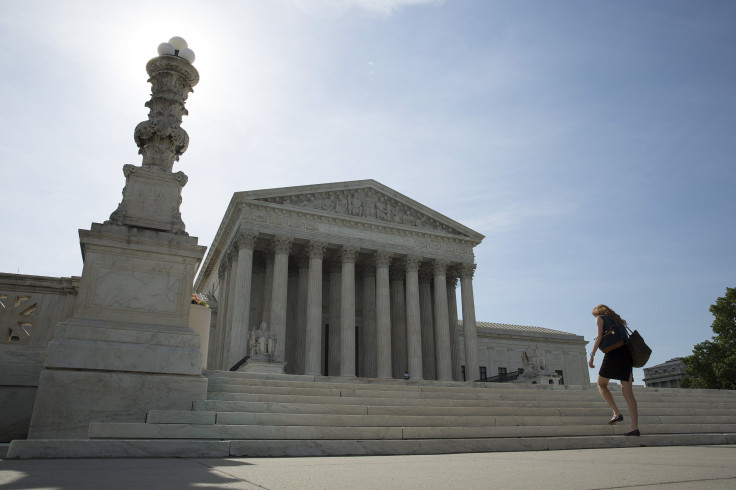SCOTUS Decision To Determine Future Of Public Sector Unions

Today's Supreme Court decision in Harris v. Quinn could threaten the financial future of large public sector unions by limiting their ability to collect dues from partial public employees.
The case of Harris v. Quinn, began in Illinois when home health care worker Pamela Harris and other such employees sued Governor Pat Quinn, claiming the state violated their First and Fourteen Amendment rights by requiring them to pay a portion of the costs of the collective bargaining process -- even though they were not part of a union, according to the Oyez Project.
William L. Messenger, a lawyer from National Right to Work Legal Foundation, arguing for Harris, claimed that compulsory union support violates her and her fellow employees' “right-to-work” in the state, reports the SCOTUSblog. Arguing for Quinn, Washington attorney Paul M. Smith, said that the decision should be left up to the states.
The decision could be the next big blow to long-suffering labor unions in the country. Only 54 percent of the public supports unions and that when compulsory union membership in Michigan was abolished, the American Federation of Teachers lost 65 percent of its members statewide, according to Politico.
Currently, some of the largest public sector unions handle millions of dollars in membership dues. The largest teachers union in the country, National Education Association, has over 3 million members, each of whom pays $178 in dues each year, totalling over $300 million. Without membership dues, NEA could lose nearly 80 percent of its annual income, according to UnionFact.com, a union watchdog website.
Another large public sector union, American Federation of State County and Municipal Employees has over 1.3 million members and takes in nearly $178 million a year. AFSCME could stand to lose nearly 90 percent its annual income. National Association of Letter Carriers has over 270,000 members, and takes in nearly $38 million from its members.
As a result of the decision, states “will need to convince employees to pay for representation that the employees would be entitled to receive for free,” Politico quotes Benjamin Sachs, a Harvard law professor who studies. While the current prospects for public sector unions look grim, “unions have overcome difficult court decisions in the past and the historical track record suggests that they will be able to adjust to a loss in Harris v. Quinn as well.”
© Copyright IBTimes 2025. All rights reserved.




















